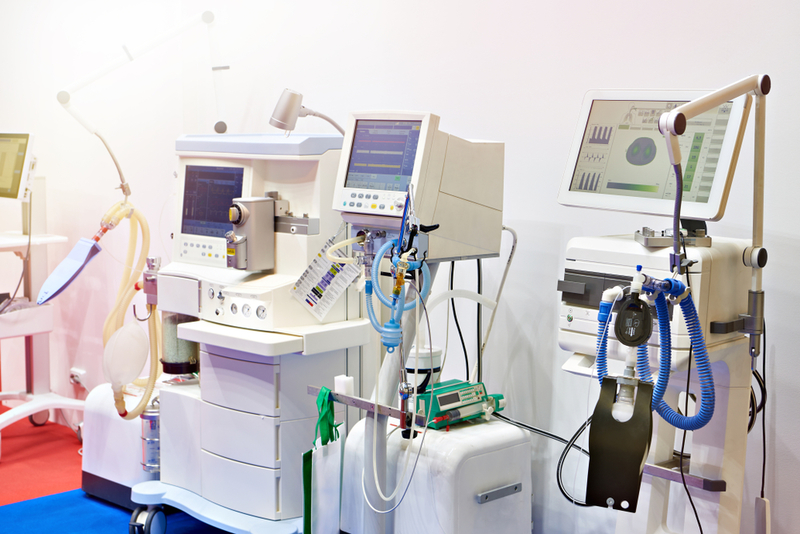An Indian-American couple has developed a low-cost portable emergency ventilator which is soon to hit the production stage and will be available in India and the developing world to help doctors deal with the COVID-19 patients.
For our comprehensive coverage and latest updates on COVID-19 click here.

Prompted by the lack of adequate ventilators during the coronavirus pandemic, a professor and associate chair in the prestigious Georgia Tech's George W Woodruff School of Mechanical Engineering and his wife Kumuda Ranjan, a practising family physician in Atlanta, developed the emergency ventilator from concept to prototype in just about three weeks-time. "If you can do a manufacturing of scale, it can be produced (item cost) in less than USD 100. Even with a price point of USD 500, they (the manufacturer) would have enough money to make sure that they are making enough profit in the market," the Professor told PTI.
He said a ventilator of this type, on an average in the US, costs USD 10,000. A ventilator takes over the body's breathing process when disease has caused the lungs to fail. This gives the patient time to fight off the infection and recover. He, however, clarified that theirs is not an ICU ventilator, which is more sophisticated and costs more.
This Open-AirVentGT has been developed to address acute respiratory distress syndrome, a common complication for COVID-19 patients which causes their lungs to stiffen, requiring their breathing to be assisted by ventilators, he said. The ventilator developed at the Georgia Institute of Technology uses electronic sensors and computer control to manage key clinical parameters such as respiration rate, tidal volume (the amount of air moved into and out of the lungs during each cycle), inspiration and expiration ratio, and pressure on the lungs. "The whole goal of this project was to make a low cost makeshift ventilator that gives those controls to the physician," Dr Kumuda told PTI, noting that there is going to be a global shortage of ventilator given the massive spread of coronavirus, which so far has killed more than 345,000 people globally and infected over 5.4 million.
In the United States till May 25, more than 98,000 Americans had died and nearly 1.7 million had tested positive. Scientists are racing against time to develop a vaccine or come out with a therapeutic treatment. Born and brought up in Patna, Bihar, the Professor earned his degree in engineering from Regional Engineering College, Trichy followed by Masters and PhD from the University of Wisconsin-Madison and has been teaching at Georgia Tech for the last six years.
Kumuda moved with her parents to the US from Ranchi when she was six. She did her medical training and residency in New Jersey. Both the Professor and Kumuda said that India had the potential to become a global manufacturing of low cost ventilators and export across the world at a rate that is affordable to all. The Professor said that the low-cost ventilator has been developed keeping in mind the requirements of countries like India and those in Africa, where the affordability care is a very big factor in providing healthcare to the people.
The idea was to develop a lost cost ventilator, which can be manufactured very easily using the already available supply chain in India, he said. He said that the team has been approached by Georgia Tech alumni in Ghana and India to set up manufacturing lines in their countries. "The impact of this could be significant if other parts of the world are hit by the COVID-19 pandemic. Having equipment that can be made quickly where it is needed and with the kind of control system doctors need could really help address the worldwide impact of this virus," he said.
The prototype is now being developed into a real product by Singapore-based Renew Group, an Indian-American from Uttarakhand. "We have built a wide collaborative network with a single focus of getting more ventilators into the most disadvantaged health systems in the world in order to help doctors and patients dealing with COVID-19," the head of the group said.
Addressing the critical shortage of low-cost, mechanical ventilators is a key focus of Renew Group, who are collaborating with a group of companies and affiliates committed to fast-track the manufacture and distribution of the medical-grade ventilation device, Open-AirVentGT to hospitals and remote facilities in under-privileged countries including India, Vietnam, Sri Lanka and Cambodia, the company said in a statement.
To maximise the effectiveness of treating patients on ventilators, Renew Group is working together with the LifeSignals Group to integrate their wearable medical biosensors, a single-use patch that allows remote patient monitoring of respiration rate, heart rate, ECG and oxygen saturation (Sp02).
This technology partnership will provide enhanced patient treatment and monitoring by wirelessly transmitting patient vital sign data directly to the Open-AirVentGT ventilator, allowing the ventilator pumps to respond to the patient's breathing rhythm and requirements complementing the use of standard pre-set algorithms, the company said. "Ventilators play a critical role in the management of COVID-19 patients suffering with severe respiratory conditions. Our engineers are working to integrate medical biosensor technology into the Open-AirVentGT ventilator that will enhance the treatment and care of the most critical COVID-19 patients," said the Chief Executive Officer and co-Founder of LifeSignals Group.
Disclaimer: Image used is for illustrative purposes only and does not represent a true or accurate depiction of the news report.
